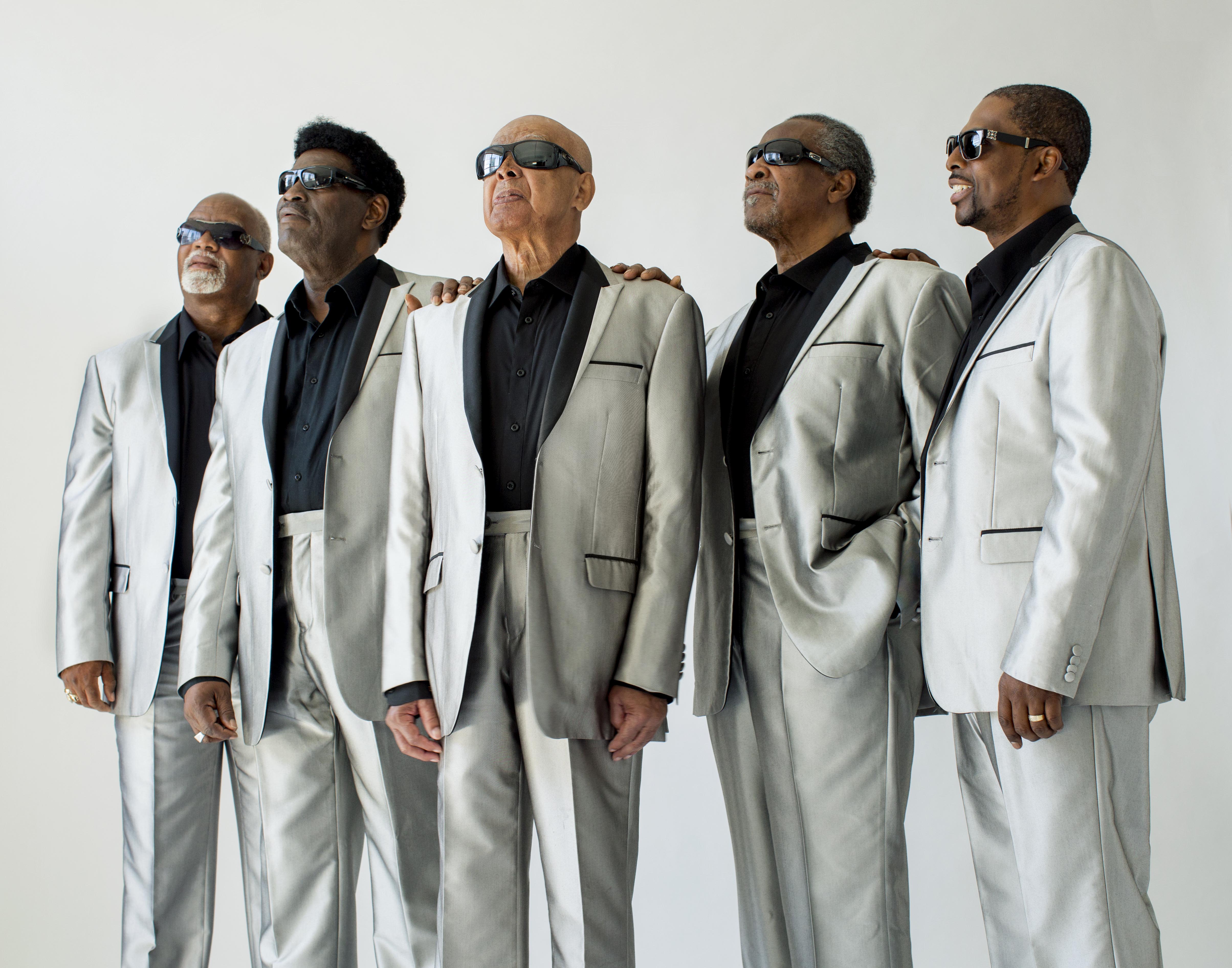Blind Boys of Alabama’s Gospel at Campbell Hall
Blind Boys of Alabama’s Gospel at Campbell Hall

“Singing brings us closer,” croon the five golden-voiced Blind Boys of Alabama on their
newest album, Almost Home. They’d know better than just about anyone.
For more than 70 years, the legendary gospel greats have used their gift of song to soothe
shell-shocked soldiers, cement civil rights, and sew torn communities — all without the
sense of sight.
On Saturday, December 16, the six-time Grammy Award winners will bring some muchneeded
tidings of joy to our fire-scarred region in a UCSB Arts & Lectures performance
at Campbell Hall. Joined by Preservation Hall Legacy Horns and special guest Ruthie
Foster, their timing couldn’t be better. “If someone’s feeling bad, we’ll make them feel
glad,” assured vocalist and original percussionist Ricky McKinnie in a recent phone
interview with the Santa Barbara Independent. “We’re looking to just reach
out and touch people and bring some happiness into this world — sometimes it gets hard
to find.”
With a set of rousingly spirited holiday songs and moving, memorable originals, the
Blind Boys promise a jubilant performance geared to uplift those who attend their
performance. McKinnie said the show will be a mix of their true-to-their-roots gospel
tunes with Christmas classics such as “Silent Night” and “Do You Hear What I Hear?”
but done up “the Blind Boys Way.” Just as exciting, though, are their originals, which
feel timeless, transportive, and, certainly, cathartic.
The Blind Boys are true originals; of American roots musicians, they’re among the
rootsiest, with a history digging back as far as World War II. The longest-standing
members, Jimmy Carter and Clarence Fountain, helped form the earliest incarnation of
the group at the Alabama Institute for the Negro Blind in 1939. They and the other Blind
Boys really were merely boys at the time, age 9 or so, with voices so strong they started
turning not only heads but also cultural tides. By the mid-’40s, they were touring the
nation; by the ’60s, they were supporting Dr. Martin Luther King Jr., bringing people
together at civil rights rallies through song. “The Blind Boys have shown people that a
disability doesn’t have to be a handicap,” McKinnie said, adding, “It’s not about what you
can’t do that’s important; it’s about what you do.”
In their songs, they pull hope and persistence from the deepest wells of American
consciousness, acting as a gospel group stethoscope to our collective culture’s changes
and traditions. The Boys have sung for three different presidents and have earned a
Lifetime Achievement Award from the National Endowment for the Arts. On
Almost Home, the group addresses themes of still-enduring racial inequality
on “Pray for Peace” — “A lot of change has come, but we are still not wise,” they sing —
and they revive Bob Dylan’s spiritual and political call of freedom, “I Shall Be
Released,” echoing anew the ’60s they lived through.
The album also serves as a sort of swan song for the group’s eldest elders. To write the
lyrics, Carter and Fountain, both in their eighties, met with different songwriters to pen
reflective paeans of faith and finality based on their own lives. Carter met death head-on
early at the age of 7, when his father passed away, as we learn on “Let My Mother Live”:
“I was just a boy when my daddy died / He got killed down in a mine in 1945,” they sing,
yearning, “Don’t leave me in a godforsaken world all alone.” They sing sorrowfully of
losing a sense of home. And elsewhere, when they sing of homecoming on the album’s
title song, drenched in shining hues of sound, we know which home they mean.
At UCSB, the Blind Boys will help bring together friends and families who have lately
had to reconsider the meaning of “home” in the face of loss. They remind us not to lose
faith in the brighter side of life, even if it’s hard to see at times. “We’re trying to bring a
smile to someone’s face when we come to town,” McKinnie said. “It’s going to be
wonderful.”
4·1·1
The Blind Boys of Alabama featuring the Preservation Hall Legacy
Horns play with special guest Ruthie Foster on Saturday, December 16, 8 p.m., at
UCSB’s Campbell Hall. For more information, visit artsandlectures.ucsb.edu



